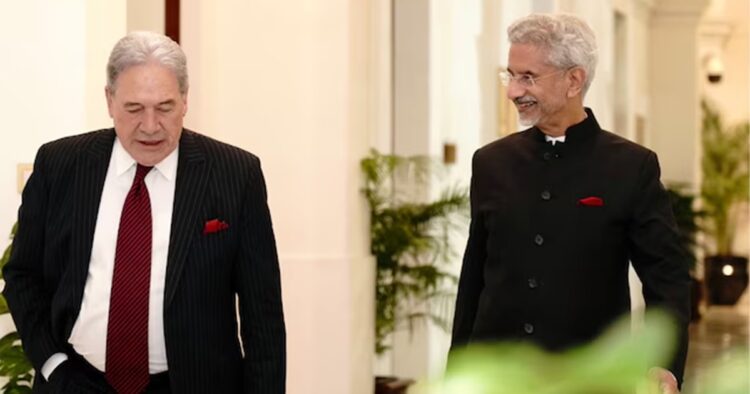In recent developments, the Government of New Zealand has sought to clarify its stance on the killing of pro-Khalistan figure Hardeep Singh Nijjar. Doubts arose after an interview with Deputy Prime Minister and Foreign Minister Winston Peters was published in an Bharatiya outlet, leading to confusion regarding New Zealand’s position.
According to a statement from the Foreign Ministry in Wellington, New Zealand’s position remains unchanged on the allegations surrounding Nijjar’s killing. The ministry emphasized that if the allegations are proven correct, it would be a matter of serious concern. However, it also highlighted that the ongoing criminal investigation must be allowed to run its course before drawing clear conclusions.
Following concerns raised over Peters’ comments, the ministry reached out to the Canadian Government to clarify that his remarks were taken out of context and did not reflect New Zealand’s official position on the matter.
In an interview with the Indian Express, Peters expressed skepticism about the case, stating, “As a trained lawyer, I look okay, so where’s the case? Where’s the evidence? Where’s the finding right here, right now? Well, there isn’t one.” He also noted that the matter had been primarily handled by the previous government, indicating uncertainties about the outcome.
Peters’ remarks are significant as they come from a leader of a Five Eyes nation, a coalition comprising the United States, the United Kingdom, Australia, Canada, and New Zealand. The killing of Nijjar, a Khalistani separatist and key figure in the Sikhs for Justice organization, has strained bilateral relations between India and Canada, particularly after Canadian Prime Minister Justin Trudeau referenced “credible allegations” of potential links between Indian agents and the murder.
Despite Canada’s efforts to seek cooperation from New Delhi in the investigation, India maintains that no specific or relevant information has been provided by Ottawa. Recent reports suggest that the Trudeau government is frustrated with the lack of progress in the investigation, with no arrests made since the killing in Surrey on June 18.
The situation underscores the complexities surrounding the Nijjar case and its implications for international relations. With New Zealand reaffirming its stance and efforts ongoing to navigate diplomatic channels, the case continues to draw attention on the global stage.

















Comments